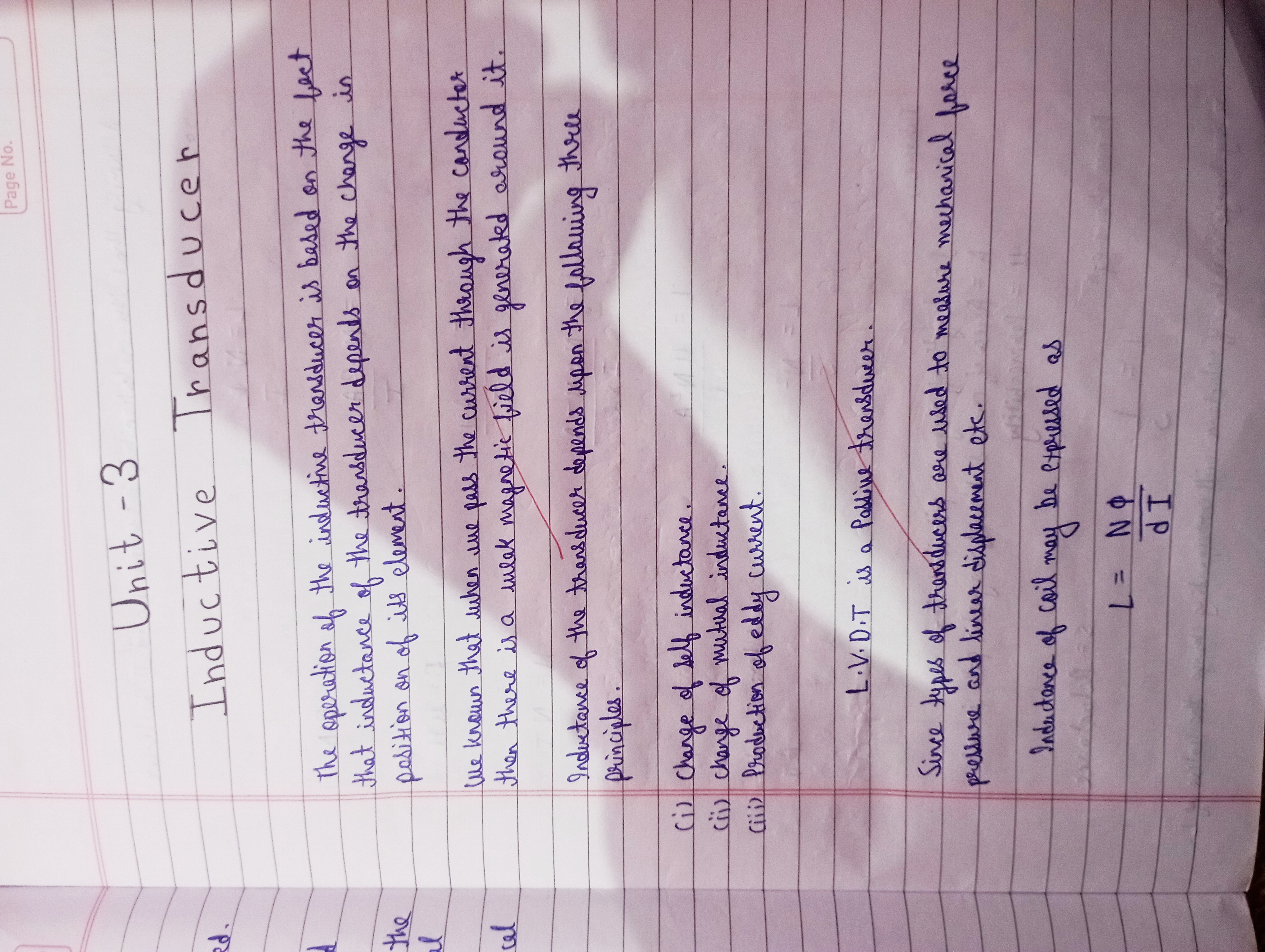What are the principles of operation of an inductive transducer?

Understand the Problem
The question pertains to the principles and operation of an inductive transducer, focusing on its dependence on characteristics such as self-inductance and mutual inductance. It also mentions the relationship between inductance and current represented in a formula.
Answer
Inductive transducers work by changes in self-inductance, mutual inductance, and eddy current production.
The operation principle of an inductive transducer involves changes in self-inductance, mutual inductance, and eddy current production, leading to changes in inductance due to the movement in its elements.
Answer for screen readers
The operation principle of an inductive transducer involves changes in self-inductance, mutual inductance, and eddy current production, leading to changes in inductance due to the movement in its elements.
More Information
Inductive transducers, such as LVDTs, use changes in inductance to convert physical motion into electrical signals, measuring quantities like displacement and force.
Tips
Ensure you understand the difference between self-inductance and mutual inductance, and how eddy currents are produced.
Sources
- Inductive Transducer : Types, Working Principle & Applications - watelectronics.com
- Inductive Transducers - Electrical4U - electrical4u.com
AI-generated content may contain errors. Please verify critical information